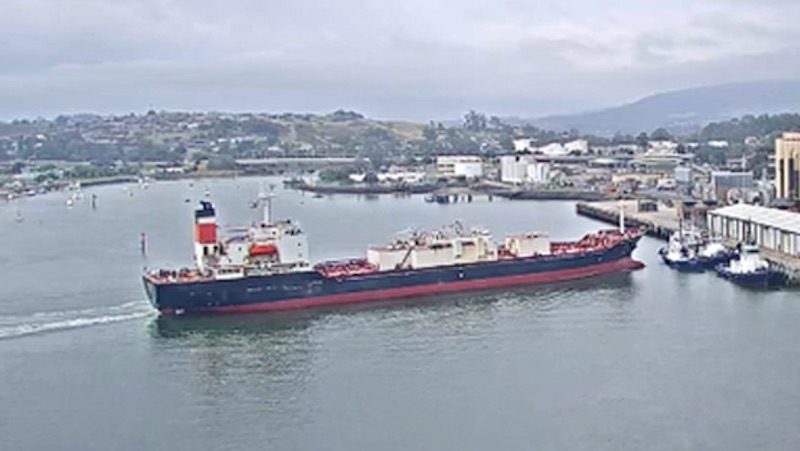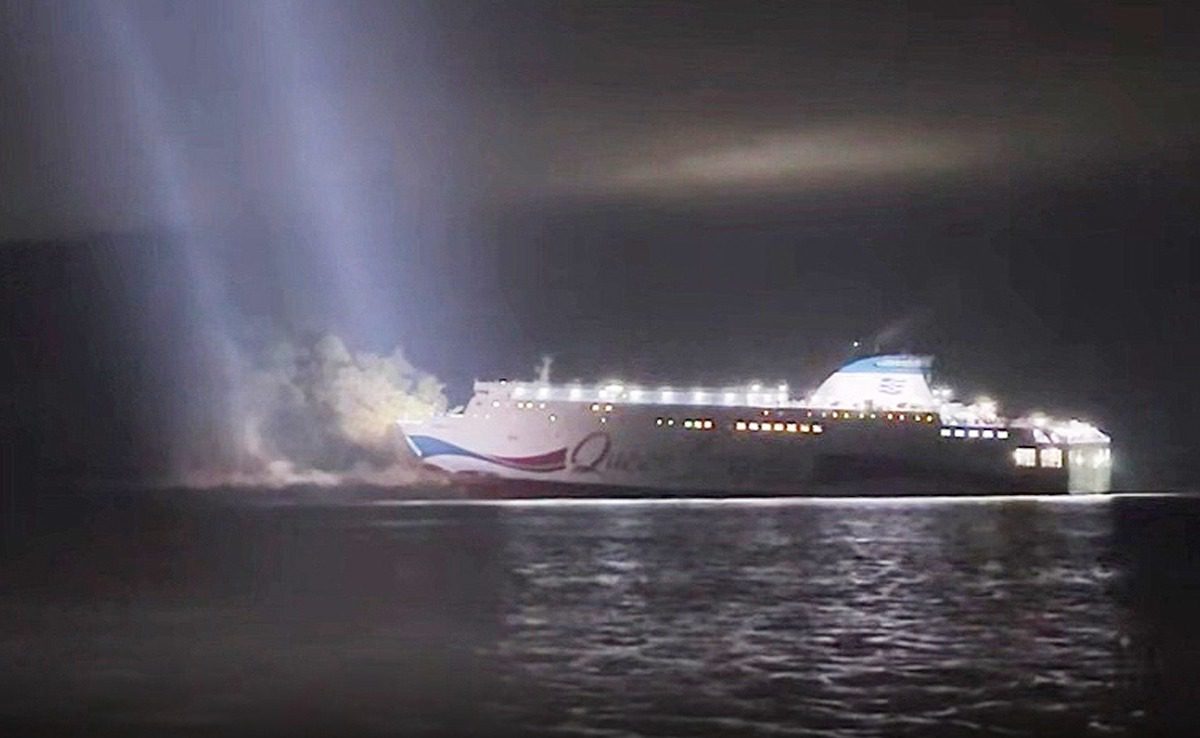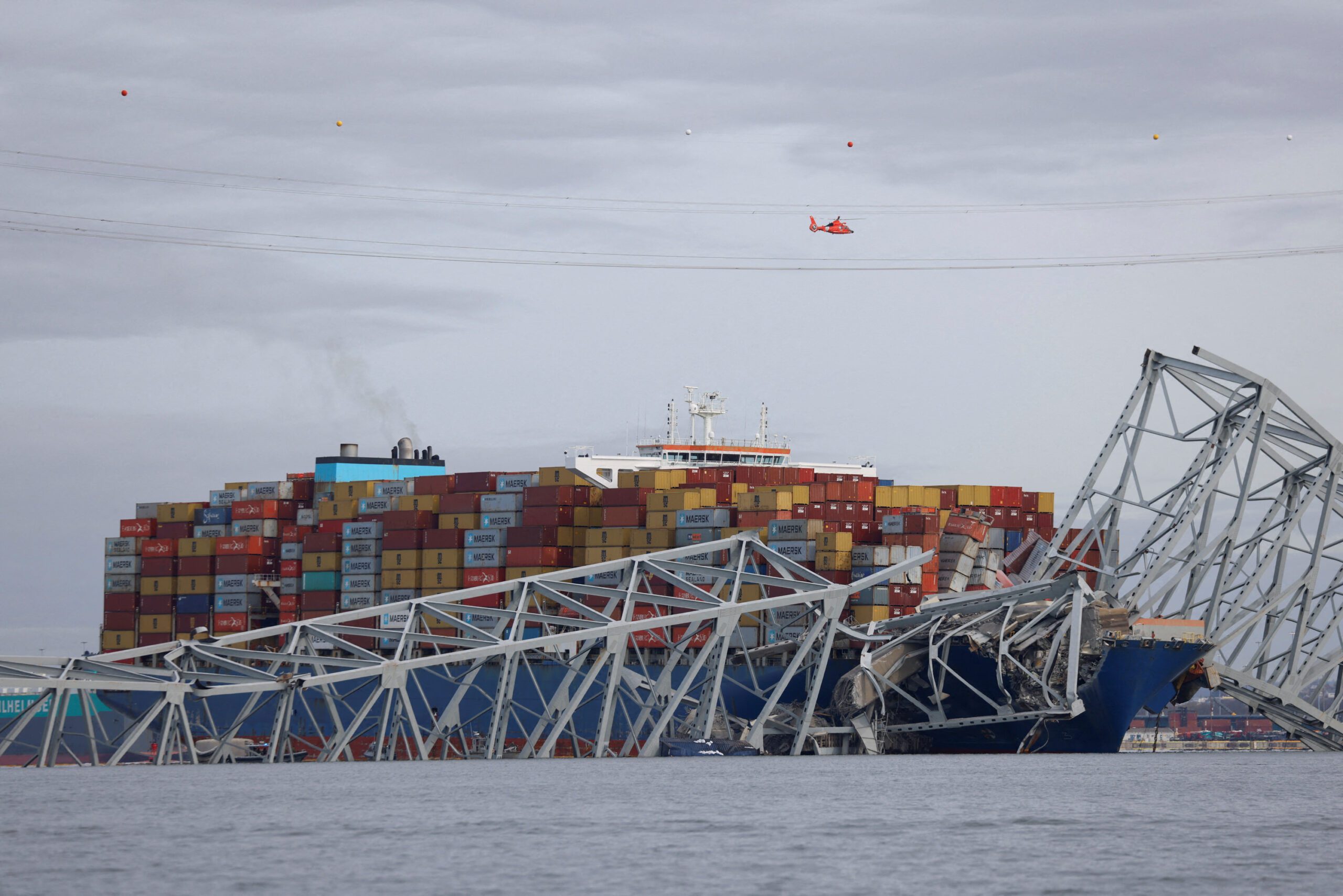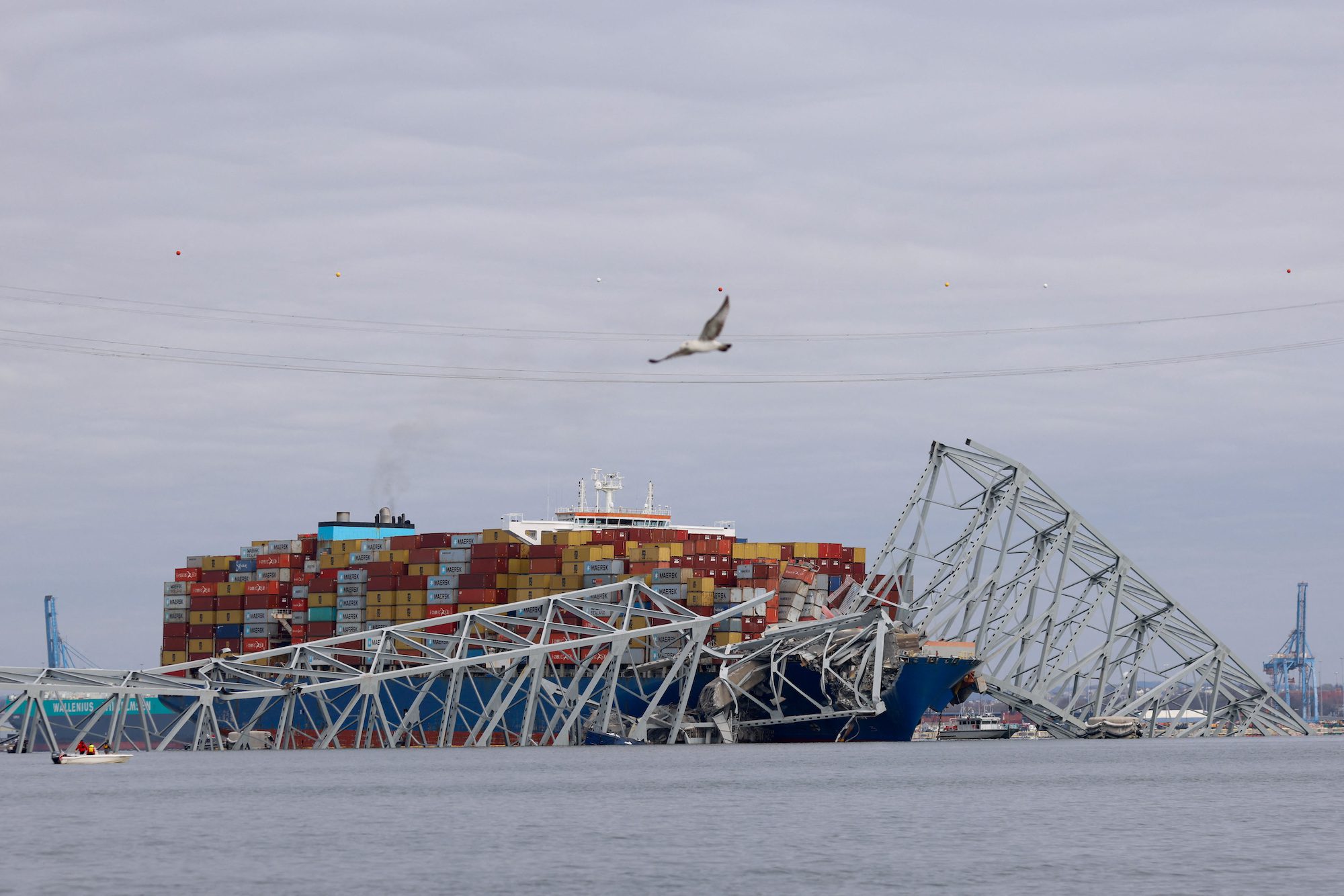The Australian Transport Safety Bureau has released a preliminary report from its ongoing investigation into a cement carrier’s collision with two berthed tugs at Devonport, Tasmania back in January.
Both tugs sank as a result of the collision, but no injuries were reported.
The preliminary report describes the Australian-flagged Goliath’s entry into the port, radio calls with both the Devonport vessel traffic service (VTS) and a mooring lines boat (which was to assist in mooring Goliath as it would come alongside the wharf), the roles and movements of the ship’s crew on the bridge, and the ship’s maneuvers leading up to the collision.
Although the report does not provide any analysis, findings, or conclusions, which will be provide in the investigation’s final report, the preliminary report does outline factual information gathered during the investigation so far.
According to the report, as the ship approached the port’s swing basin, the crew received two radio calls from the mooring boat. Goliath’s master asked the second mate to respond to the radio calls, so the second mate moved from beside the steering console to near the bridge front console to use the VHF radios located there. Meanwhile, the master commenced a slow turn to starboard in the swing basin as part of the final approach to its berth.
Shortly after, Goliath’s master re-positioned from the wheelhouse to the port bridge wing conning station, from where they maneuvered the ship using main engine power settings (via the main engine telegraph), the bow thruster and a joystick to input rudder angle commands to the ship’s VecTwin steering system.
“As the maneuver progressed, the master felt that the ship was not swinging as expected and was closing with two tugs moored at berth number Three West,” said ATSB Chief Commissioner Angus Mitchel.
To arrest the ship’s movement, the master set the VecTwin joystick to the ‘astern’ setting and placed the main engine telegraph to first ‘half ahead’ and then ‘full ahead’.
“Ships fitted with the VecTwin twin-rudder steering system can be maneuvered at low speed with thrust from the propeller re-directed as required by the two rudders, controlled by a joystick,” explained Mr Mitchell.
“The system allows astern thrust to be generated using ahead inputs on the main engine without the need to stop the engine and engaging astern propulsion, as would be required for conventional ship maneuvering.”
With the ship’s speed unexpectedly increasing, the master checked the rudder angle indicator and found that both rudders were still amidships and not at the angles corresponding to the VecTwin joystick’s ‘astern’ setting. The master called out to the second mate that the steering was not in VecTwin steering mode and immediately placed the engine telegraph to ‘stop’.
At about the same time, Goliath collided about halfway up the starboard side of the tug York Cove, at a speed of 4.7 knots.
York Cove was moored outboard of and alongside another tug, Campbell Cove. Both were severely damaged and began to take on water almost immediately.
On board Goliath, the second mate, who at that point was positioned by the wheelhouse door, re?entered the wheelhouse and found the steering mode selector still in manual steering mode.
The second mate changed the steering mode over to VecTwin mode while the master began to move the ship astern using astern inputs on the main engine to get clear of the tugs before berthing the ship without further incident.
Within about five hours of the collision, both tugs had sunk in about 7 meters of water and were subsequently declared constructive total losses. There was nobody on board the tugs, and no reported injuries on Goliath.
“The investigation is progressing and the ATSB will review and assess the ship’s safety management system and navigation procedures, the effectiveness of bridge resource management on board, and review past incidents involving Goliath,” Mr Mitchell said.
“Investigators will also examine TasPorts’ pilotage exemption processes and port procedures, as well as the shore pollution response.”
A final report will be released at the conclusion of the investigation.
“However, should a critical safety issue be identified at any time during the course of the investigation, the ATSB will immediately notify relevant parties so safety action can be taken,” Mr Mitchell said.

 Join The Club
Join The Club











